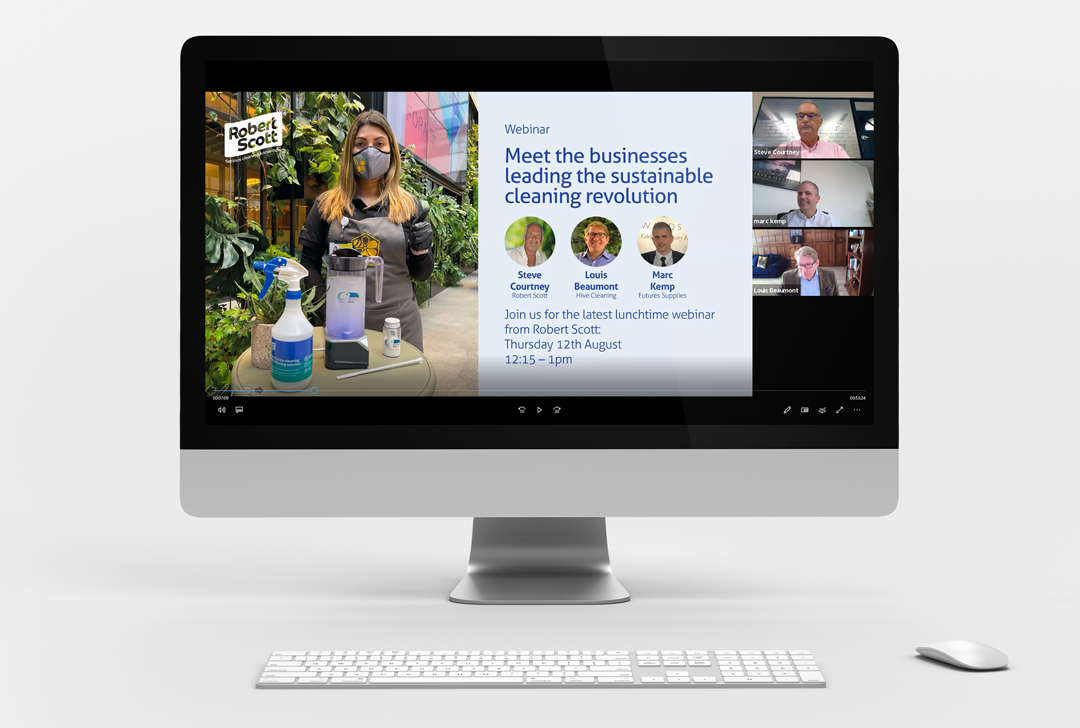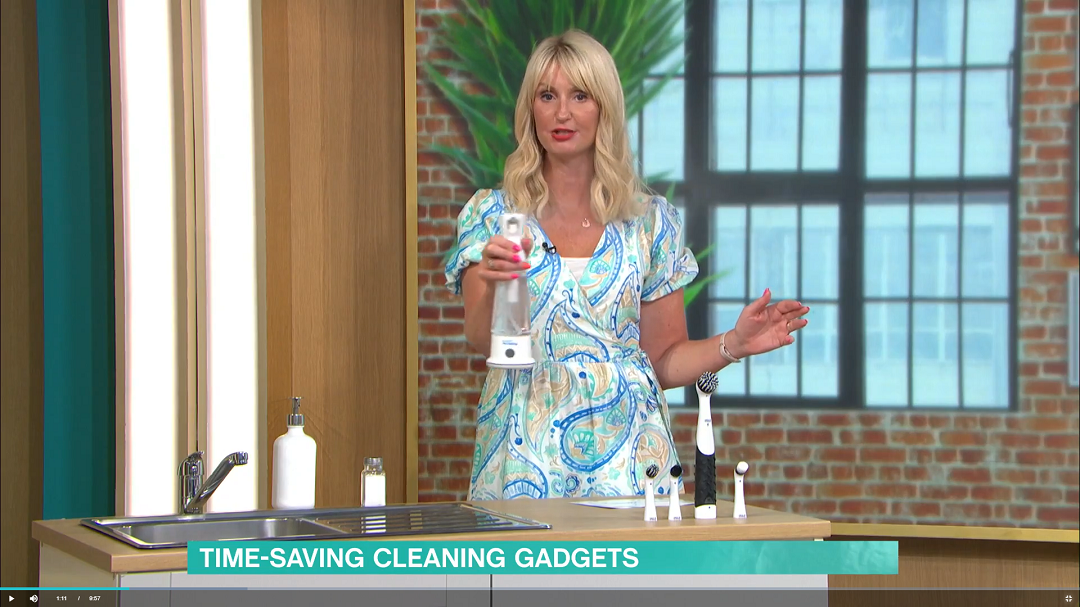UK’s first food manufacturer installs non-chemical cleaning system
Jump to section
Subscribe to news
Home of homemade cheese
JS Bailey is extremely proud of its heritage, as well as its locality – based in a region, Cheshire, which has an undisputed reputation for cheese making. As a leading supplier to the food services industry, JS Bailey describes itself as the ‘home of homemade cheese’ – churning out high quality goods from its state of- the-art production facility.
High standards are everything and JS Bailey does not compromise on any aspect, injecting £3 million of capital investment into the business in 2019 – funding that has created a new production and storage unit that allows it to significantly increase production volume.
This combines with the introduction of three additional grating lines, increasing the capacity of the business and allowing further growth into the food service, manufacturing and export markets.
Such is the commitment to growth and maintaining exceptional levels of production, that no stone is left unturned in the manufacturing process. The cheese processing company has five ‘high care areas’ (areas of food preparation), that require daily cleaning and sanitising after production. Areas of operation include grating, re-milling, cutting and processing out of specification cheese.
Food manufacturing demands the highest of hygiene
Understandably, the issue of cleanliness is vital around food preparation areas, in order to combat microorganisms like listeria, mould and spores, especially as cheese is a natural produce.
Due to its location, JS Bailey does not have mains drainage; it has its own on-site water treatment system. And that was why it’s even more important that cleaning chemicals aren’t allowed to seep into the treatment tanks – these being alkaline detergents and chlorine-based sanitisers.
James Beattie, director at DEB Disposables and cleaning products supplier to JS Bailey, explains: “This problem led to the research and trial of the Toucan Eco – the hypochlorous-based bio-cleaning solution.
“As a company wanting to improve their environmental credentials but having issues finding the right solution, they contacted me and asked, ‘Can you help?’. It was then that we introduced them to Toucan Eco.”
The greener way to clean with Toucan Eco
David Chesworth, QA manager at JS Bailey, commented: “After trialling the effectiveness of hypochlorous solution, as a sanitiser in our production facility, and finding it to be at least as effective as the chemicals that were in current use, we purchased the Toucan Eco system in October 2019.
“The hypochlorous solution now accounts for 99% of the sanitiser used in the production facility and since implementing the changeover from a chemical- (chlorine) based sanitiser, there have been no failures of swabbing results.
“A major advantage of the solution as a sanitiser over chemicals is that microbes can build a resistance to chemicals over time and so higher concentrations are required to maintain effectiveness. This does not apply to hypochlorous acid as the solution destroys the cell wall of the microbes.”
JS Bailey invested in a Toucan Eco Active (10 litres) for factory use, together with a Toucan Eco 3 (1 litre) unit. The solution, which is made in only 20 minutes, effectively kills more than 99.999% of microorganisms, both quickly and comprehensively, while providing protection to water, surfaces, fabrics and people.
How it works
The eco-friendly disinfectant and cleaning solution only requires tap water, salt and a low voltage electrical current about a 10th of the amount of electricity required for a kettle to make an antibacterial, multi-surface cleaner that is 100% safe and has undergone stringent tests by EU-accredited, independent labs and university research departments.
“The solution is incredibly versatile and can be used in handheld trigger sprays for smaller areas, pressure sprayers for larger areas or fogging machines for whole room sanitisation. Utensils can also be soaked in the solution in between use,” said David.
He continued: “As hypochlorous solution degrades back to water on contact with biological material (such as microbes), the discharge into our treatment plant is plain water, which does not affect its eco-system adversely as is the case with chemicals.”
Sanitise factory and high care areas
The company is currently using 50 litres per week to sanitise the factory after production has finished, which is applied by hand pumped pressure sprayers. This is in addition to around 25 litres per week for sanitising high care areas during production breaks, warehouse fabrication cleaning and the cleaning of office blocks for daily use. The team also use a further 10 to 15 litres per week for fogging of production rooms.
David added: “The hypochlorous is used primarily for sanitising of machinery after washing down at the end of production. We also use trigger spray guns at various times in the day in production areas – for example, prior to commencing production, break times, or in between production runs to spray food contact surfaces and food contact machinery.”
Six month ROI
At the current rate of usage (over 90 litres per week), JS Bailey estimates that by comparing the cost of the unit against the chemical sanitiser it was purchasing, the team will achieve a return on investment within six months.
“Because of the frequency of our cleaning regime – we carry out a deep clean after each production. With Toucan Eco, we expect to see a total saving of around £4,000 each year on commercial cleaners. After the initial cost has been offset, the solution costs literally pennies to produce,” explained David.
Sustainability is also an important part of the JS Bailey business model. In addition to its own water treatment system, the company recycles where possible and is constantly looking at ways to reduce its plastic packaging to enable it to be more eco-friendly.
Toucan Eco allows the company to work towards that ‘green’ goal, as switching to the environmentally friendly disinfectant and cleaning solution is proven to drastically reduce plastic waste by removing the need for 99% of chemical agents.
Safe for cleaners
David added: “Hypochlorous solution is also safe for contact and so our cleaners like it. There’s no need for PPE, it eliminates any instances of chemical injury, and it’s food safe. Plus, the reduction in plastic waste is significant – we’re saving the five litre bottles we used to buy, which can’t be recycled as they contain toxic chemicals.
“And, as hypochlorous degrades back to water on contact with biological material (such as microbes), the discharge into our treatment plant is plain water, which does not affect the plant’s ecosystem as in the case of chemicals.
“Our aim was to find a cost-effective product with a high effectiveness of sanitising, with particular emphasis on eliminating mould spores and Listeria in high care areas, with a product that does not have an adverse effect on our water treatment system,” David added.
“Based on its effectiveness as a sanitiser, its environmental impact, its cost effectiveness and ease of use, we would have no hesitation in recommending this product.”
SHARE THIS:
Tags: Cheese, Hypochlorous, JS Bailey, Manufacturing, Sanitiser, Sustainable, Toucan Eco




